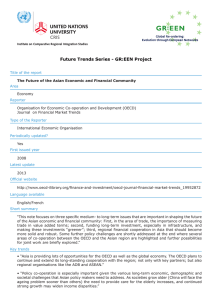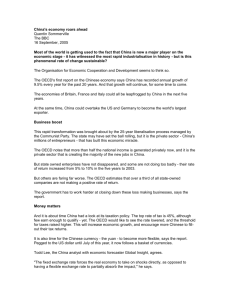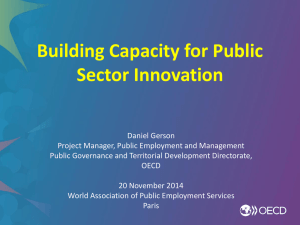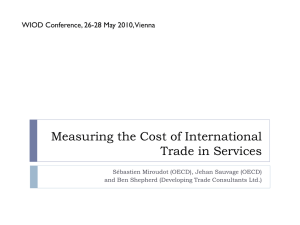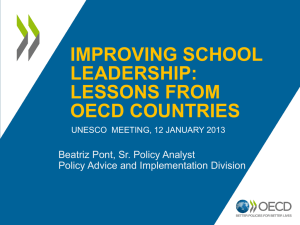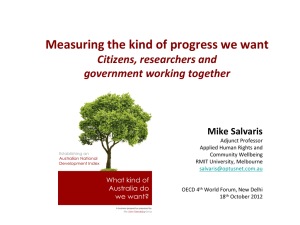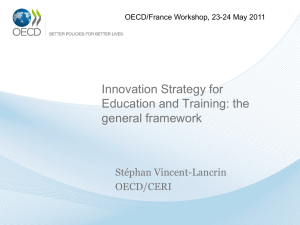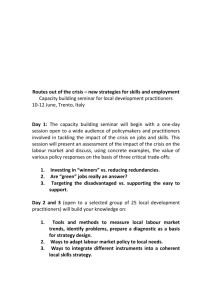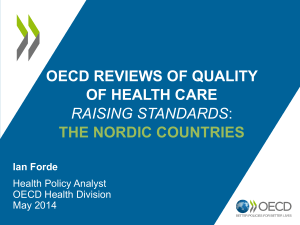Knowledge Societies
advertisement
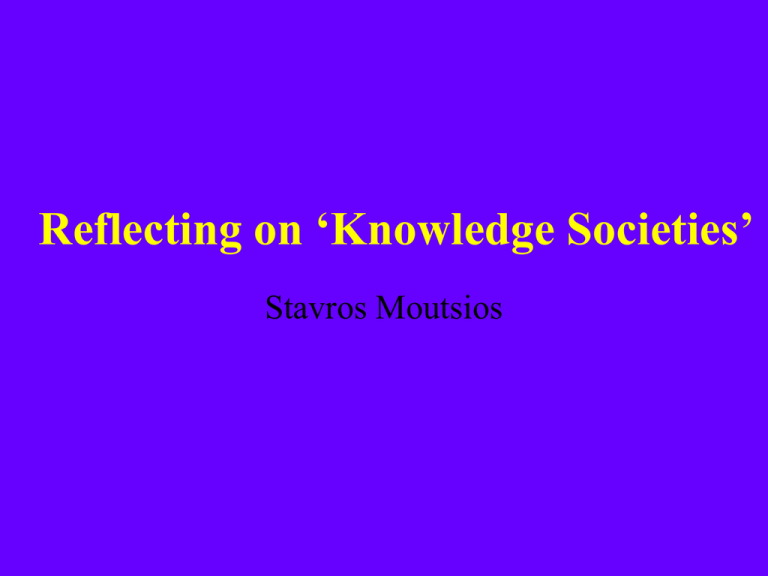
Reflecting on ‘Knowledge Societies’ Stavros Moutsios Knowledge is fundamental resource of postindustrial society . . . the post-industrial society, it is clear, is a knowledge society. Daniel Bell (1973) [Today] the source of productivity lies in the technology of knowledge generation, information processing and symbol communication. Castells (2000) What does the transition to the mode of post-industrial development mean for production, education and culture? PRODUCTION • Knowledge is generated in contexts of application • A new division of labour is emerging Source: OECD, 2001 A new division of labour • Routine production services • In-person services • Symbolic-analytic services (Reich, 1991) Division of labour and adult education Source: OECD, 2003 EDUCATION • Access to education becomes progressively universal • The linkage between education and production is increased Adult learning for what? Source: OECD, 2003 CULTURE • ‘Expert systems’ penetrate most aspects of social life • Self-identity becomes a ‘reflexive’ project • The Media constitute the fabric of our societies Main characteristics of ‘knowledge societies’ • Production, reproduction, processing, and application of information and knowledge are crucial for core economic activities. • There is a new division of labour favouring those possessing high educational qualifications. • Education becomes progressively universal but with more vocationally oriented content. • ‘Expert systems’ dominate social life and self-identity formation • The Media shape contemporary culture inducing new patterns of differentiation and stratification amongst their users Main References • • • • • • • • • Bell, D. (1976) The Coming of Post-Industrial Society: A Venture in Social Forecasting, 2nd ed. New York: Basic Books. Burton-Jones, A. (1999) Knowledge Capitalism: Business, Work, and Learning in the New Economy. Oxford: Oxford University Press. Castells, M. (2000). The Rise of the Network Society. 2nd edition. Oxford: Blackwell. Gibbons, M., Limoges, C. Nowotny, H., Schwartzman, S., Scott, P. Trow, M. (1994) The New Production of Knowledge: The Dynamics of Science and Research in Contemporary Societies. London: SAGE Publications. Giddens, A. (1991) Modernity and Self Identity: Self and Society in the late Modern Age. London: Polity Press Herman, E. & McChesney, R (2000) “The Global Media” in Held, D. & McGrew, A. The Global Transformations Reader. Cambridge: Polity. OECD (2001) The New Economy: Beyond the Hype – Final Report on the OECD Growth Project, Executive Summary. Paris: OECD. OECD (2003) Beyond Rhetoric: Adult Learning Policies and Practices. Paris: OECD. Reich, R. (1991). The Work of Nations: A Blueprint for the Future. New York: Vintage.
